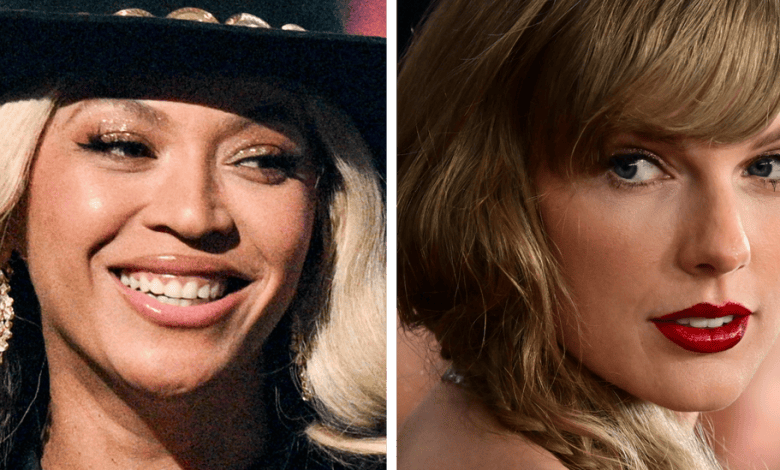Taylor Swift and Beyoncé Avoided a Collision on the Charts. (Again.)

In February, Taylor Swift took the stage at the Grammy Awards to accept the prize for best pop vocal album. After dutifully thanking the Recording Academy and her fans, she got down to business: “My brand-new album comes out April 19,” she said, in a surprise announcement revealing “The Tortured Poets Department.” It was a heads up for her loyal followers, as well as anyone else in the business with a spring release on the radar: If you want your new album to debut at No. 1, don’t release it on April 19. Or April 26. Or May 3, for that matter.
A week later, following a teaser during a Super Bowl commercial, Beyoncé also dropped news of a new album: “Cowboy Carter” would arrive earlier than “Poets,” with breathing room, on March 29. Another pop powerhouse in the Grammy audience made her own announcement in early April: Billie Eilish will unveil her forthcoming third album, “Hit Me Hard and Soft,” a month after Swift’s release, on May 17.
Beyoncé and Swift, the 21st century’s pre-eminent pop stars, have often been cast as competitors if not rivals, a story line partly rooted in misogyny and amplified by dueling fan armies filled with stans, or superfans.
For their part, the two artists have regularly dispelled the notion over the years. They were first linked, through no fault of their own, at the 2009 MTV Video Music Awards, when Kanye West interrupted a Swift acceptance speech to advocate for her fellow nominee Beyoncé; later that night, Beyoncé brought Swift onstage to finish her remarks. In 2021, Swift shared on Instagram that Beyoncé had sent her congratulatory flowers after Swift won the album of the year Grammy for “Folklore,” calling Beyoncé “the queen of grace & greatness.” And last year, following their blockbuster stadium tours, they appeared at each other’s concert film premieres, a pointed rebuke to message-board zealots looking to sow discord.
“Clearly, it’s very lucrative for the media and stan culture to pit two women against each other, even when the two artists in question refuse to participate in that discussion,” Swift told Time magazine. (Representatives for Swift and Beyoncé declined to comment.)